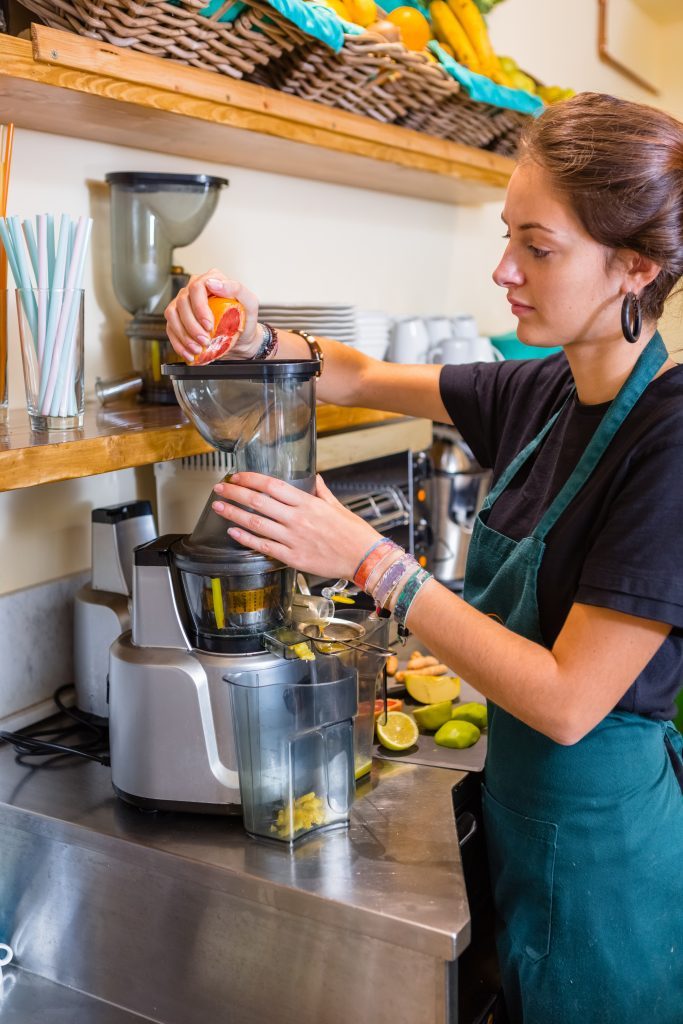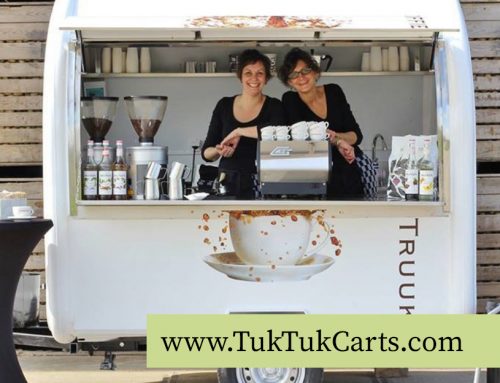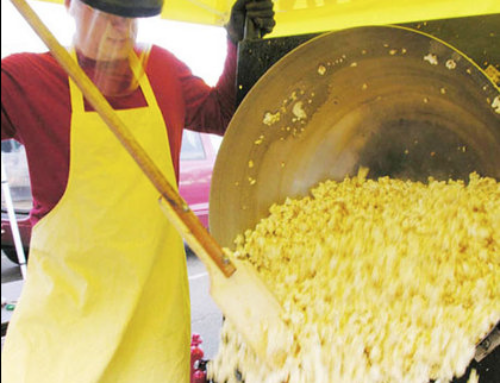Podcast: Play in new window | Download | Embed
Subscribe: RSS
Thinking about starting a self-funded juice or smoothie business in 2020 or beyond? According to industry reports this industry can expect steady growth in the natural juice space globally for the next half decade. Here are a few statistics about the encouraging trajectory of the industry in coming years:
- The fruit and vegetable juice market is expected to hit $257 billion by 2025. This market was estimated at $158 billion in 2016. This is phenomenal global growth. (Source: Grand View Research)
- Total revenue for juice and smoothie bars in the United States is estimated at $3 billion with an anticipated annual growth rate of 1.8%. (Source: IBIS World)
- The cold pressed juice market in the United States is expected to reach $8.1 billion by 2024. (Source: Reuters)
In short, the growth of the juice and smoothie market is a bye product of the larger mega trend of a change in consumer tastes. Consumers globally are replacing sugary “junk food” with organic snacks and beverages that offer more nutritional value.
In spite of all this promising data, the decision of whether or not starting a cold press juice or smoothie business is the right opportunity for you depends on you! Your current situation, skill set, and interest the the business model. Based on all the research this is a growing business opportunity, but that doesn’t mean it’s the right choice for you.
The goal of this post is to help you figure out if this is the right business opportunity for you. In today’s interview, we dive into what it’s really like to operate a juice or smoothie bar in addition to giving you the basics on how to start the business.
Today’s guest Andrew McFarlane has operated a juice food truck, multiple juice bars over the past 15 years, and is the founder of Start A Juice Bar agency. Learn more at TheJuiceConsultant.com where Andrew helps entrepreneurs start profitable juice bars through business planning, menu development, branding and more.

We cover the financials of operating a juice bar, cost to get started, equipment you’ll need to invest in, whether or not you should join a franchise, the pros and cons of operating a smoothie truck and most importantly… Is this business right for you? Click play on the video interview below to find out.
Business Overview: What’s a Smoothie / Juice Shop?
A smoothie or juice shop is a retail store with a menu offering a wide-range of fruit and vegetable based beverages like cold-press juice, smoothies, and . These shops attract health conscious consumers looking for nutritious beverages and snacks.
Popular examples of these juice and smoothie bars include Juice It Up!, Orange Julius, and Smoothie King.
The Inspiration for Getting Started
Andrew was introduced to juicing while working as an actor. Andrew observed one of the cast mates was in insanely good shape. Not only did was the actor extraordinarily fit, but was a lighting rod of energy to boot.
Andrew had to know what this guy was doing. So he asked. The actor informed Andrew that he was a raw vegan. Being a vegan or having another specialty diet is not uncommon today, but in the early 2000s these diets were not well known.
This conversation led Andrew down a path to understanding more about his own diet and overall health. Shortly thereafter, Andrew discovered juicing and transformed his eating habits. Andrew was hooked.
Ultimately, Andrew decided to turn his passion for this healthy diet and lifestyle into a full-time business. We dig into Andrew’s back story and tips for getting started in this interview.
Starting a Juice Food Truck Versus a Store

When Andrew decided to take the leap and open a juice bar at a retail location, he came to the same realization so many other entrepreneurs face. It was going to cost a lot of money to start a juice business in a commercial space.
Fortunately Andrew did have some savings. But not enough to pay out of pocket to rent a space, convert the retail space into a juice / smoothie shop, purchase equipment, pay for licenses in California, and other typical upfront expenses.
After some attempts to raise money to start the company with investors fell through, Andrew got the idea to start a juice truck instead.
The advantages of starting a truck versus instead of a retail store are significant. First off, you don’t have a monthly rent payment to make which is often your first or second biggest expense. Second, you don’t have to risk it all with a location. If a certain vending location doesn’t work you, you move on to the next more profitable spot.
For these reasons, Andrew decided to start a juice / smoothie truck instead of a juice bar.
While hindsight is 20/20, Andrew would not start a truck first if he had to do it all over again. Instead, Andrew would have found a way to open a retail location.
As an entrepreneur, it’s your job to solve problems and make it happen. If that means opening a juice truck first this path can work as well. But in an ideal scenario, starting a store first and adding a truck to supplement those sales is the preferred approach.
Advantages and Disadvantages of Operating a Juice / Smoothie Truck:
One big reason entrepreneurs start out with a food truck is due to the lower upfront startup cost compared to a retail location. But as Andrew explains the overhead in greater detail within the interview. After looking at the economics, Andrew realized the juice truck business was spending $4,000 a month for rent at the commissary, fuel, parking tickets, and payments on the truck. In many parts of the United States, you could lease a retail space for that kind of overhead.
This realization led Andrew to the conclusion that a retail space is often the right choice for startups even if the one-time startup costs are higher. There are advantages and disadvantages to either approach you decide to take:
Pros:
- Lower barrier to entry and upfront cost. Expect to pay between $50,000 – $100,000 to be all in with a juice food truck.
- You aren’t stuck in a permanent location. You can move to more profitable locations at anytime.
- Labor expenses can be lower on a truck, especially if you plan to operate the truck yourself. You may only need to hire 1 – 2 part-time employees to assist in the operations.
- This can serve as a lower cost way to create a proof of concept for your business.
Cons:
- A retail location is simpler to operate in many ways than a food truck. You don’t need to find a new location to vend each day. You don’t need to commute to different locations.
- Space is a major limitation on a truck. When you operate a juice bar, you need a lot of space for inventory. It’s not uncommon for you to use 100 pounds of apples per day. It’s easier to store fruits and vegetables with ample refrigeration and freezer space in a commercial kitchen versus a truck.
- Smaller menu. This is related to the space limitations of a truck.
- File this one under mechanical issues. If your truck breaks down, you won’t be able to generate sales until it’s fixed.
- Many cities require you to park your truck at a commercial kitchen or commissary overnight to be cleaned. The monthly cost of storing the vehicle at these locations can range from $500 – $2000 per month. This is a big chunk of the rent you would be investing in a store instead.
- You’ll need to regularly fuel, maintain (regular oil changes, washing), and repair the food truck.
The barrier to entry is low, but the cost of operating is high.
Andrew McFarlane on the advantages / disadvantages of starting a juice truck.
Establish a First Draft Route Right Away
One of the big takeaways that Andrew has for those considering a juice truck is to establish a tentative route or list of places you plan to vend before you buy the truck. This is a mistake that Andrew admits making early on in the business.
Decide in advance specific ideas for locations to generate sales on a smoothie truck. Some locations that can be profitable include yoga studios, farmer’s markets, fitness centers, and business parks. Special events like marathons, fundraisers, or mud runs can also be lucrative.
You should enter this list of prospective locations in a spreadsheet. After you create the list, reach out to the business by phone or email to see if they are open you to vending there. This will help you understand specifically where to setup shop after you open.
As Andrew points out, you should complete this research before you get a food truck. This will help you be more prepared and reach profitability faster after opening.
Related Reading: 6 Profitable Locations to Park a Food Truck
Are Juice and Smoothie Shops Profitable?
Smoothie shops can expect to generate between $250,000 (low-end) and $800,000 (high-end) in gross revenue per location. As an example, in 2015 the top 25% Smoothie King franchisee’s generated $681,724 in gross sales per unit.
The location, quality of product, staff, brand, marketing knowledge, ownership, and many other factors will determine your actual revenue numbers.

How to Estimate Juice / Smoothie Shop Profitability
One thing to keep in mind is top-line revenue numbers do not represent how profitable a location is. Expenses for all smoothie shops incur include labor, lease payments, taxes, and the cost of goods sold or COGS (apples, bananas, carrots, almond milk, kale, and other ingredients).
You can start to building projections for sales volume profit margin of your juices with this downloadable juice profit spreadsheet. Juice businesses should have between 50% – 70% gross margin on the products they serve before overhead like rent, taxes, and labor. If your estimated gross margins don’t fit into this range, consider increasing prices for find ways to cut costs.
| Cold Press Pricing and Profit | ||
| Non-Organic | Organic | |
| Retail Price Per Unit | $7.00 | $8.00 |
| Packaging (Disposible cups / straw) | $.50 | $0.50 |
| Food Cost | $1.50 | $2.50 |
| Total COGS | $2.00 | $3.00 |
| Gross Profit | $5.00 | $5.00 |
| Profit Margin | 71.42% | 62.50% |
Looking at the profitability per unit, you might be thinking you’ll be making killing in the juice business. Not so fast! Remember that labor, taxes, any debt payments, and rent haven’t been taken out yet. These costs represent your biggest business expenses.
Each item on your menu will have a different set of fruits, vegetables, and total cost to make. As a result, you’ll need to complete this process for each item on your menu to understand menu profitability.
Be sure to include both smoothies and juices as part of your menu. Most shops will do about 60% of sales in smoothies and 40% in juices according to our featured guest.
One other consideration that Andrew makes during the interview is on the topic of food spoilage. Fresh produce has a short shelf life. After you operate the juice business for a few months, you’ll get an understanding of how much inventory you’ll need to keep in stock. Make understanding your inventory needs a priority early in the business to avoid food waste.
Profitability Per Day
After you’ve determined the profit margin per sale, it’s time to figure out what your profitability per day in a store might be based on sales. It’s important to do some self exploration with these numbers to get an understanding of what level of daily profit would satisfy you as a business owner.
If a few hundred dollars profit per day meets your goal for the business then you will need a much smaller operation to be successful. If you require a few thousand dollars in profit to be worth it, you’ll need a higher-volume location.
| Daily Sales Volume / Profit | ||
| Units Sold | Profit (Not-Organic) | Profit (Organic) |
| 1 | $5.00 | $5.00 |
| 20 | $100.00 | $100.00 |
| 50 | $250.00 | $250.00 |
| 100 | $500.00 | $500.00 |
| 250 | $1,250.00 | $1,250.00 |
| 500 | $2,500.00 | $2,500.00 |
| 1000 | $5,000.00 | $5,000.00 |
| 1500 | $7,500.00 | $7,500.00 |
| 2000 | $10,000.00 | $10,000.00 |
Create a Juice Bar Profit and Loss Statement
A profit and loss statement often referred to as a P&L shows the revenues, costs, and expenses of a business. As an informed business owner, you’ll want to review this statement on a monthly basis. You can learn more about the details of a P&L statement for a juice bar here.
Here’s what a typical P&L statement will look like for a juice or smoothie shop:
| P&L Statement for Organic Juice Bar, LLC | |
| Total Monthly Income | $20,000.00 |
| Expenses | |
| Perishable Goods | $8,000.00 |
| Labor | $6,000.00 |
| POS Fees | $400.00 |
| Monthly Lease / Rent | $2,000.00 |
| Insurance | $300.00 |
| Internet Access | $100.00 |
| Debt | $300.00 |
| Supplies | $1,000.00 |
| Legal Services | $200.00 |
| Net Monthly Income: | $1,700.00 |
What’s the average day like operating a smoothie bar?
Operating a smoothie bar, whether you decide to use a food truck or juice bar is no easy task. As with any startup business, it’s going to take a lot of time and effort to get the business off the ground. Here’s what a typical day for Andrew was like in the early days with a juice truck:
My lack of intellegence forced me to work harder!
Andrew McFarlane describing the early days of his food startup.
Andrew’s first juice truck started in Hollywood, California. For anyone thats visited you know this is a highly congested urban area. As a result, Andrew had to wake up at 4 a.m. to begin prep work for the day and secure a vending location for a 28 foot truck.
Andrew would regularly park his truck outside a Trader Joe’s location. Around 6:30 a.m., the windows would be up and they would start taking sales for the day.
From this point Andrew describes being in a flow state most days. Andrew would be making juices to order, cleaning the truck, and working as fast as possible to meet demand until about 3 p.m. when business would slow for the day or they would run out of product.
Even though the work day was ending at this time there was still a lot of work that needed to be done to prepare for the next day. Ordering more produce and cleaning the truck for the next day all happen after hours. On average it would take a team about 2 hours to clean out the truck after a day of operation.
In the first phase a business, Andrew recommends being extremely hands on so you understand all aspects of the operations. This includes understanding how to clean machines. You can’t manage what you don’t understand!
What’s the biggest challenge associated with running a successful juice bar?
How much does it cost on average to start a juice / smoothie bar?
You can expect to pay between $150,000 – $250,000 on average to start a juice / smoothie bar. On one occasion, Andrew has consulted for a business owner that invested $400,000 starting a single location. For comparison purposes you can start a juice truck for between $50,000 – $100,000.
There are numerous factors that go into determining the total startup cost of a smoothie bar. Some of the biggest factors include location, square foot or size of the location, the type of equipment you plan to install, how much renovation needs to be complete to transform the space into a juice manufacturing facility, furniture, branding investment and license fees.
As Andrew points out during the interview, no one wants to pay more than they need to during the startup process. But you don’t want to cut corners to save money on key areas of the business either. The branding and experience of the business can be the thing that allows you to charge more, attract the right customer base, and differentiate the business.
Don’t cut corners on the things that make a business special! The most important thing is getting started in the right way, not the cheapest way.
What type equipment will you need to start a juice bar?

The simplest way to ensure you have all the equipment you need in a juice bar is to reserve engineer the menu. Look at each menu item then build the equipment list needed to make each menu item.
Here’s a sample list of equipment commonly found in juice bars:
- Automated Citrus Press – Juicer. This will save you on labor cost.
- Manual Citrus Press – Juicer (If you want to do it yourself.) More affordable to purchase, but will increase labor cost.
- Refrigerator
- Ice Machine
- Knives, knife wracks, cutting boards.
- Blenders – Vitamix or BlendTech. Andrew says Vitamix is slightly more heavy duty.
- 3 Compartment Sinks
- Portion scales.
- Shelves for storage.
- POS system
- Food processor if you plan to serve food.
Go one step further with your equipment list by figuring out how much inventory you plan to hold in your shop. This will determine the size of refrigerators you plan to purchase.
Juice Franchise VS Independent
Should you start a juice franchise or start an independent concept? There’s no right or wrong answer on this one. This will depend on your goals and preference.
Key advantages of operating a franchise smoothie business is that you get to leverage an existing brand, systems, processes and supply chain. Ideally, you’ll already have a built-in customer base that knows how you are and what the menu is.
Generally speaking, however, Andrew does not recommend enrolling in a franchise juice opportunity. One big reason is because you’re creating extra overhead to your business in the form of franchise fees, royalties and sometimes being stuck buying supplies from a specific supplier that is high cost.
By creating a juice brand, you retain the upside of being able to create your own franchise opportunity in the coming 5 – 10 years. You’ll have less overhead and have the flexibility to change suppliers, menus, or brand positioning if needed. Andrew’s consulting company helps new juice / smoothie entrepreneurs establish a new business with the benefits of enrolling in a franchise without the ongoing costs and other downside of this approach.
Next Steps
The organic juice / smoothie segment is an appealing market that will experience steady growth in the United States for the next 5 – 10 years. If you’re passionate about producing a healthy product, offer exceptional customer service, and understand basic business principles this might be the right business opportunity for you.
After reading this post and listening to the interview the immediate next steps should be to create a first draft menu and business plan for your juice shop. This will get your ideas onto paper to begin creating a formal plan for the business.




